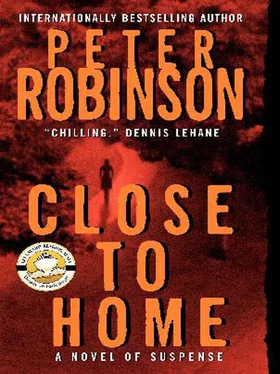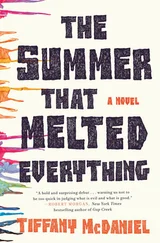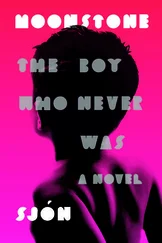“So? Where’s the connection?”
“A club on Church Street called Le Phonographe.”
“I remember that place. It was a discotheque.”
Michelle frowned. “I thought disco was in the seventies, not the sixties.”
“I’m not talking about the music, but the establishment itself. Clubs like Le Phonographe offered memberships and served meals, usually an inedible beef burger, if my memory serves me well, so they could sell alcohol legally after regular closing time. They’d stay open till three in the morning, or so. There’d be music and dancing, too, but it was usually Motown or soul.”
“You sound familiar with the place, sir.”
“I was young once, DI Hart. Besides, Le Phonographe was the sort of place you kept an eye on. It was a villains’ club. Owned by a nasty piece of work called Carlo Fiorino. Used to like to pretend he was Mafia, wore the striped, wide-lapel suits, pencil-thin mustache, spats and everything – very Untouchables – but his father was a POW who ended up staying on after the war and marrying a local farm girl out Huntingdon way. Plenty of local villains hung out there, and you could often pick up a tip or two. And I don’t mean for the three-thirty at Kempton Park.”
“So it was a criminal hangout?”
“Back then, yes. But petty. People who liked to think they were big players.”
“Including Bill Marshall?”
“Yes.”
“So you knew about Bill Marshall’s activities?”
“Of course we did. He was strictly a minor presence. We kept an eye on him. It was routine.”
“What was this Carlo Fiorino’s game?”
“Bit of everything. Soon as the new town expansion was well under way he turned Le Phonographe into a more up-market club, with decent grub, a better dance floor and a casino. He also owned an escort agency. We think he also got into drugs, prostitution and pornography, but he was always clever enough to stay one step ahead, and he played both sides against the middle. Most of the time.”
“What do you mean, sir?”
“Got himself shot in a drug war with the Jamaicans in 1982.”
“But he never did time?”
“Never got charged with anything, far as I remember.”
“Doesn’t that strike you as odd, sir?”
“Odd?” Shaw seemed to snap out of his reminiscing mood and become his grumpy old self again. He stuck his face so close to hers that she could smell his tobacco-mint-and-whiskey breath and see the lattice of purple veins throbbing in his bulbous nose. “I’ll tell you what’s bloody odd, DI Hart. It’s you asking these questions. That’s what’s odd. None of this can possibly have anything to do with what happened to Graham Marshall, and that’s a fact. You’re muckraking. I don’t know why, but that’s what you’re doing.”
“Sir, all I’m doing is trying to get a handle on the circumstances of the boy’s disappearance. Looking over the investigation and over other investigations around the same time seems a reasonable way of doing it to me.”
“It’s not your brief to look into the Marshall investigation, DI Hart, or any other, for that matter. Who do you think you are, Complaints and Discipline? Stick to your job.”
“But sir, Bill Marshall was one of the men interviewed in connection with this protection racket, all involved with Carlo Fiorino and Le Phonographe. Some of the city center shopkeepers filed a complaint, and Marshall was one of the people they named.”
“Was he charged?”
“No, sir. Only questioned. One of the original complainants ended up in hospital and the other witnesses backed off, retracted their statements. No further action.”
Shaw smirked. “Then it’s hardly relevant, is it?”
“But doesn’t it seem odd to you that no further action was taken? And that when Graham Marshall disappeared, his father never came under close scrutiny, even though he had recently been implicated in a criminal ring?”
“Why should he? Maybe he didn’t do it. Did that thought ever enter your head? And even if he was involved in some petty protection racket, it doesn’t make him a child killer, does it? Even by your standards that’s a long stretch of the imagination.”
“Was Bill Marshall a police informer?”
“He might have let slip the odd snippet of information. That’s how we played the game back then. Tit for tat.”
“Is that why he was protected from prosecution?”
“How the hell should I know? If you’ve read your paperwork, you’ll know I wasn’t on that case.” He took a deep breath, then seemed to relax and soften his tone. “Look,” he said, “policing was different back then. There was more give-and-take.”
Plenty of take, Michelle thought. She’d heard stories of the old days, of departments, of stations and even of whole counties run wild. But she didn’t say anything.
“So we bent the rules every now and then,” Shaw continued. “Grow up. Welcome to the real world.”
Michelle made a mental note about Bill Marshall’s possible role as a police informer. If he had informed on criminals here in Peterborough, she could only imagine what the Krays might have done if he’d tried anything like that with them and then disappeared. The South Pole wouldn’t have been far enough, let alone Peterborough. “From what I can piece together,” she went on, “the Graham Marshall investigation followed one line of inquiry and one only when it became clear that he hadn’t run away from home: a sex killing by a passing pervert.”
“Well? What’s so odd about that? It’s what the evidence pointed to.”
“Just seems a bit of a coincidence, that’s all, that some pervert should happen to be driving by a quiet street at that hour in the morning, just as Graham’s doing his paper rounds.”
“Wrong place at the wrong time. Happens often enough. Besides, do you think perverts don’t know about paper rounds? Don’t you think someone could have been watching, studying, stalking the Marshall kid, the way such perverts often do? Or didn’t they teach you that at Bramshill?”
“It’s possible, sir.”
“You think you can do better than us, do you?” said Shaw, his face turning red again. “Think you can out-detect Jet Harris?”
“I didn’t say that, sir. It’s just the advantage of hindsight, that’s all. A long perspective.”
“Look, we worked our bollocks off on that case, Jet Harris, Reg Proctor and me, not to mention dozens more DCs and uniforms. Have you any idea what that sort of investigation is like? The scope of it? How wide a net we cast? We were getting a hundred sightings a day from as far afield as Penzance and the Mull of fucking Kintyre. Now you come along with your fancy education and your Bramshill courses and you have the gall to tell me we were wrong.”
Michelle took a deep breath. “I’m not saying you were wrong, sir. Only you didn’t solve the case, did you? You didn’t even find a body. Look, I know you came up the hard way, and I respect that, but there are advantages to an education.”
“Yes. Accelerated promotion. They let you buggers run before you can toddle.”
“Policing has changed, sir, as you pointed out not so long ago. And crime has changed, too.”
“Sod that for a theory. Don’t spout your book-learning at me. A criminal’s a criminal. Only the coppers have got softer. Especially the ones at the top.”
Michelle sighed. Time to change tack. “You were a DC on the Graham Marshall investigation, sir. Can you tell me anything at all?”
“Look, if I’d known anything we’d have solved the bloody case, wouldn’t we, instead of having you point out how stupid we were?”
“I’m not trying to make anyone look stupid.”
“Aren’t you? That’s how it sounds to me. It’s easy to second-guess, given twenty-twenty hindsight. If Bill Marshall had anything to do with his son’s disappearance, believe me, we’d have had him. In the first place, he had an alibi-”
Читать дальше












